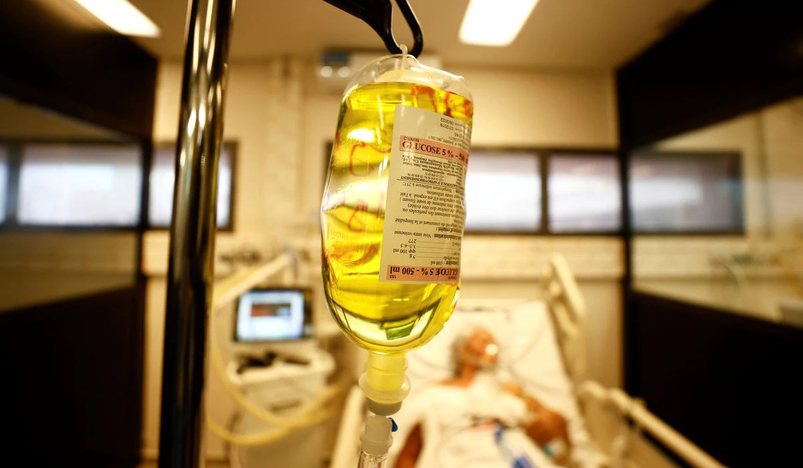
A patient suffering from the coronavirus disease (COVID-19) lies in the intensive care unit of the infectious diseases department of Dalal Jamm hospital as Senegal records more COVID-19 deaths in Dakar, Senegal August 5, 2021. REUTERS/Zohra Bensemra
REUTERS
The following is a roundup of some of the latest scientific studies on the novel coronavirus and efforts to find treatments and vaccines for COVID-19.
Heart attack, stroke risks rise in COVID-19 patients
COVID-19 increases patients' risks for heart attack and stroke, suggests a study from Sweden that compared 86,742 individuals infected with SARS-CoV-2 in 2020 and 348,481 people without the virus. In the week following a COVID-19 diagnosis, the risk of a first heart attack went up three- to eight-fold, and the risk of a first stroke due to a blood-vessel blockage rose three- to six-fold, the researchers found. The risks then dropped steadily but remained elevated for at least four weeks, according to the report in The Lancet. The researchers did not include COVID-19 patients who had had heart attacks or strokes in the past, but for them, the risk of another heart attack or stroke is probably even higher, said coauthor Dr. Anne-Marie Fors Connolly of Umea University.
Flu vaccination linked with less severe COVID-19
Flu vaccination may lower the risk for severe illness from the coronavirus, including life-threatening sepsis infections and strokes, according to a report in PLoS One on Tuesday. The researchers studied nearly 75,000 COVID-19 patients, half of whom had received the most recently available flu shot. They also found fewer patients who had flu shots had to be admitted to intensive care units or visited emergency departments, and fewer had dangerous blood clots in their legs, compared to patients who did not get flu shots. Studies like this one, however, cannot prove that flu vaccines caused the better outcomes, or how they might have done so. Stronger and larger studies would help "to validate these findings and determine if an increased emphasis on influenza vaccination will improve adverse outcomes in SARS-CoV-2-positive patients," the authors wrote.
Breakthrough infections may boost immune defenses
Breakthrough SARS-CoV-2 infections in fully vaccinated people seem to strengthen their immune defenses, suggests a new study posted on medRxiv ahead of peer review. One month after a COVID-19 outbreak in a German nursing home, doctors collected blood samples from the 23 elderly residents and four staff members who had tested positive. They found that vaccinated residents who still got the virus had significantly higher levels of antibodies afterward than vaccinated residents who did not get infected, and they also had more antibodies that were capable of neutralizing variants of the virus. Coauthor Jorg Timm of Heinrich-Heine-University in Düsseldorf said the findings suggest there might come a time - after most people have developed some level of immunity to the SARS-CoV-2 virus - when natural infection will have some benefit, but only when it does not lead to severe symptoms or disease.
Reporting by Nancy Lapid and Linda Carroll; Editing by Tiffany Wu
.jpg)
Qatar Secures Place Among the World's Top 10 Wealthiest Nations
.jpg)
Hamad International Airport Witnesses Record Increase in Passenger Traffic

Saudi Arabia: Any visa holder can now perform Umrah

What are Qatar's Labour Laws on Annual Leave?
Leave a comment